12 Simple Tips on Visiting Switzerland on a Budget
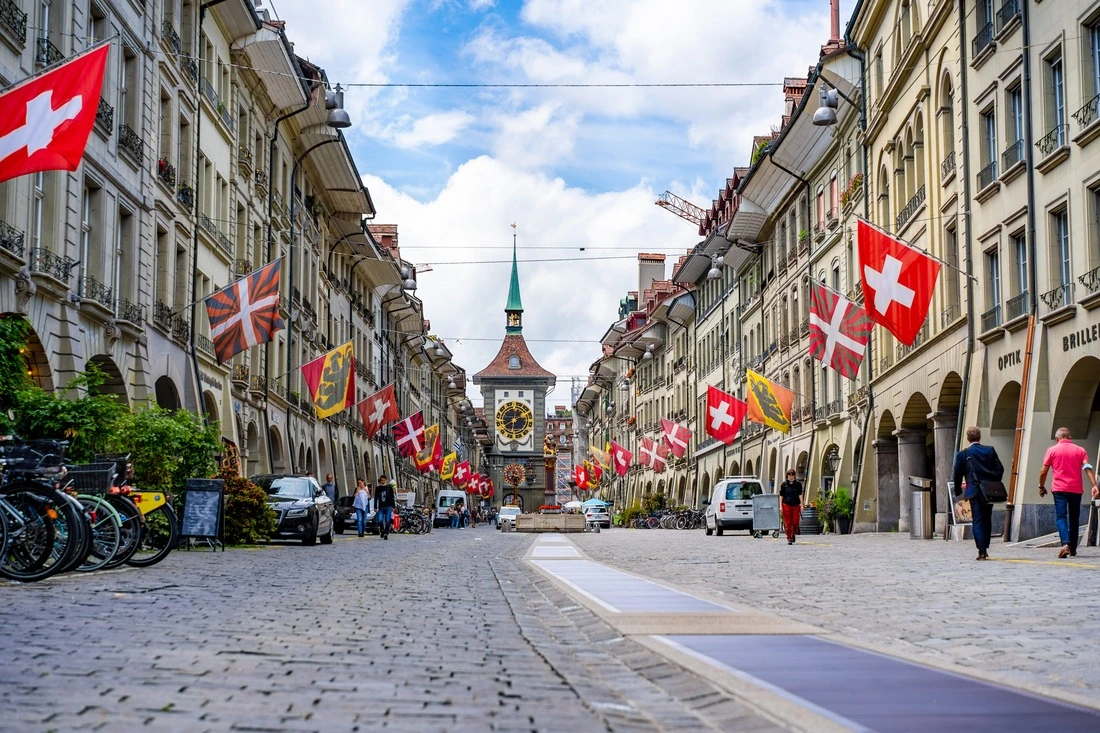
There is no secret that Switzerland is one of the most expensive countries in the world.
When I first reviewed the expected expenditures, it was a shock to see that a Big Mac cost £6.50 (this did not include table service from Ronald McDonald himself, by the way). This was just a standard burger with no incentive.
Burger and clown jokes aside, why should that stop you from travelling? Switzerland may be expensive for most, but its prices can soon be forgiven by how beautiful and aesthetically pleasing it is.

When I planned for my interrail trip around Europe, I set aside half my budget for Switzerland. With seven other countries to visit, I felt prepared with the notion that I was going to break the bank on my first stop.
However, with more extensive research and ways to save costs on my budget, I made Switzerland the cheapest country I visited, leaving more of my budget to spend elsewhere.
Although Switzerland will never be a low-cost holiday, there is no reason not to approach your stay as cost-effectively as possible.
So, where was I? Let’s dive into some budget-friendly travel tips for your Switzerland travels.
Disclosure: This post may contain affiliate links that earn me a small commission if you use them at no extra cost to you.
How to travel to Switzerland on a budget
1. Book accommodation with accessible eating options
It’s a little on the obvious side, but imagine you’ve had a long hike, you’re walking back tired and hungry, past that nice-smelling smokehouse on the corner, and all you can think of is going in. You are going to choose to go in there, right? I know I simply would.
In Switzerland, average restaurant prices range from 20 to 50 CHF per person. If you are travelling on a budget, you must try to reduce the temptation to eat out by booking accommodation with cooking facilities.
Try looking at purchasing food from the local supermarkets. A budget-friendly food shop will cost you an average of 80 CHF per week. I recommend Aldi and Lidl as your budget-friendly options.
Plenty of Swiss hostels have communal kitchens equipped with cooking facilities if you plan to stay in a hostel.
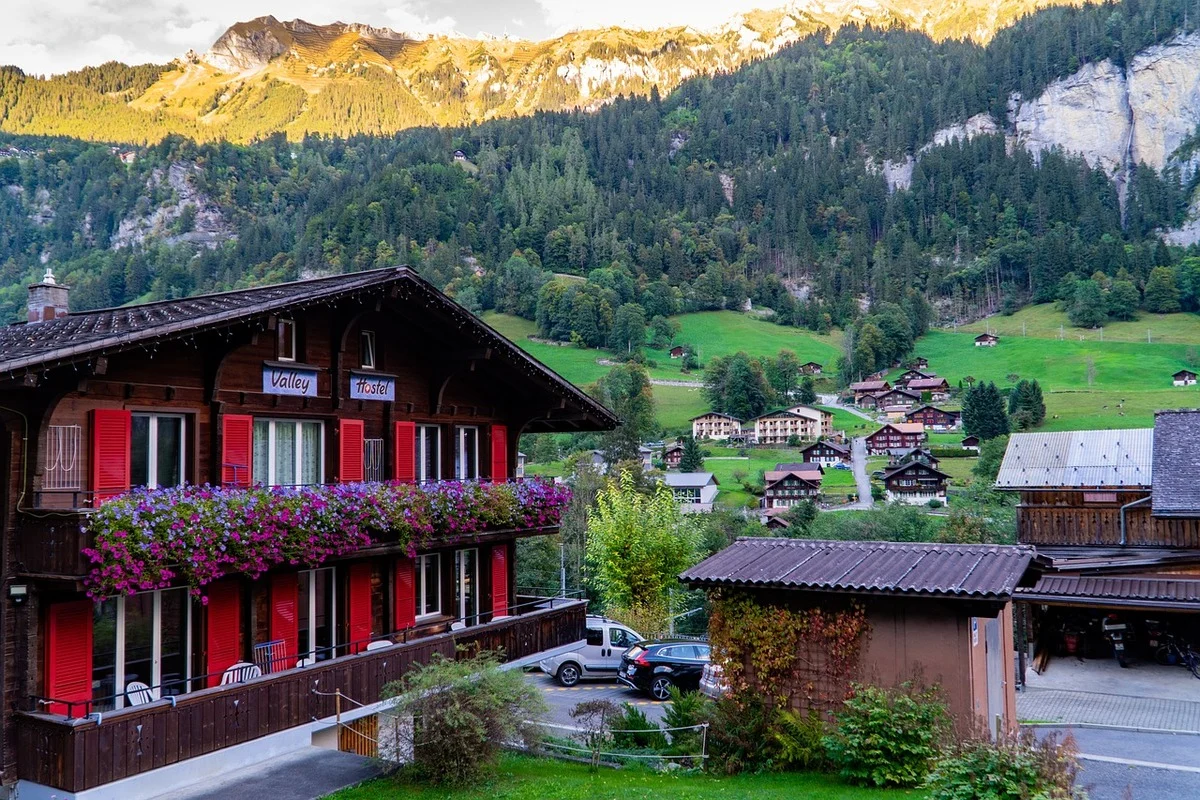
2. Bring non-perishable foods
If you have room in your suitcase, with spare luggage weight allowance, why not consider bringing non-perishable foods?
When my partner and I visited Switzerland, we both packed a few pasta essentials for some dinner nights, alongside long-life milk and cereal to have for breakfast. I know it seems like we’re preparing for an apocalypse, but with this initiative, we instantly saved a lot of money that we might have spent eating out on some days.
Obviously, we couldn’t have pasta every night. Everyone needs a treat. If you want to try the restaurant food in Switzerland, it is honestly delicious.
Try to balance it out each night, with one night eating out and one night eating in. That’s my best advice! There are also local shops in most areas, so other food options to cook are available.

3. Make use of free public transport
In most of Switzerland’s areas, those who book a one-night stay or more will receive guest cards that give them free access to public transport.
You may also be eligible for attraction discounts, depending on the location of your stay. Before booking your hotel, research your area beforehand to ensure you can receive one.
When my partner and I booked to stay in Adelboden, we received an email a few days before arrival containing information for our guest cards. We then received our cards once we filled in our details and assigned the guest cards to our name.
As we did, you should be able to access your Guest Card through Apple Pay and Google Pay. Show this to the conductor when they ask for your ticket.
We didn’t even know about this until we received the email, and we had initially planned a budget of £200 for bus travel. This saving allowed us to free up that budget for the rest of our travels.
Note: Guest cards can only be used for transport in your region; you won’t be able to use them to go from Geneva to Zurich, for example.
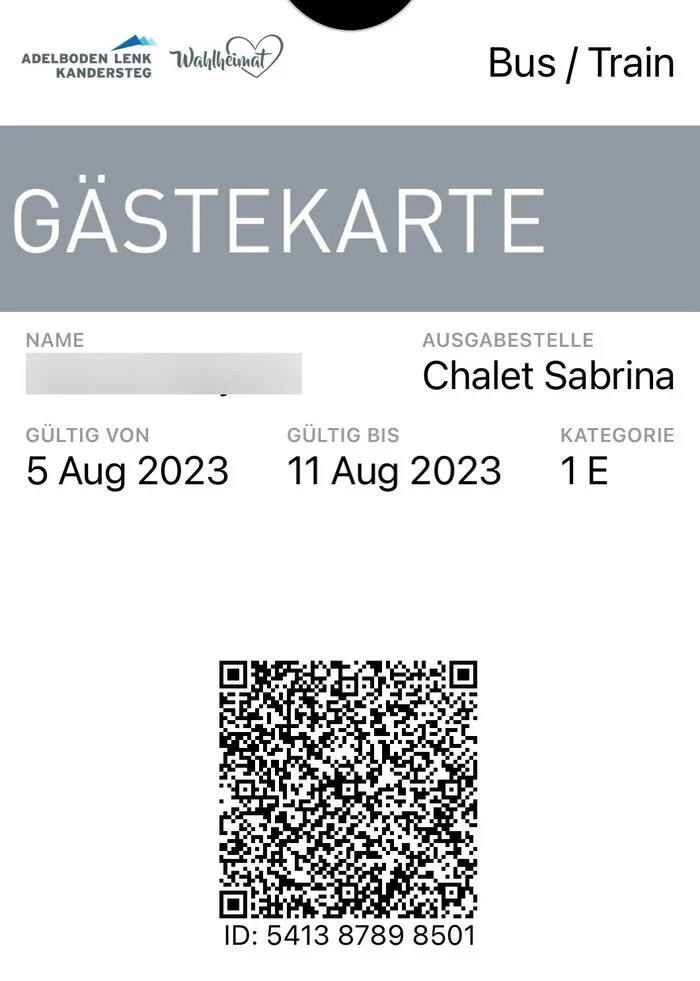
4. Stick to hiking
You will be surprised how many beautiful long-stretch hikes there are overlooking the Swiss landscapes, which are just minutes outside your door.

With plenty of public footpaths around the main areas, you won’t need to worry about finding ways to get around on foot. With gorgeous views and adventure days out right at your feet, you don’t need to spend big to make your travels worthwhile.
And if you can’t access the starting point of a hike without public transport, why not use your free guest card to get you there?

5. Travel during off-peak season
The most expensive time to visit Switzerland is during the summer. To travel on a budget, it is well advised to visit during the shoulder months (Spring and Autumn) to take advantage of lower costs for accommodation and attractions. Oh, and book in advance; that also helps.
Recommendation: Visit in autumn. It’s a beautiful time to explore the country, with many picturesque lakes surrounded by forests where the falling leaves create a stunning natural display.
If you’re looking for a lake to visit in Autumn, Lake Blausee is your best bet. It is breathtaking!
Winter in Switzerland also has its charms: It’s expected snowfall and classic European Christmas markets will soon make you feel like you’ve teleported to a winter wonderland.

6. Weigh up your options before buying the Swiss Travel Pass
Yes, stop there. Don’t buy the Swiss Travel Pass just yet. If you plan on using public transport, then make sure you weigh up all your options before investing in something costly you may never use.
Don’t get me wrong, the Swiss Travel Pass is brilliant; it gives you unlimited transport around Switzerland with free admission to multiple attractions across the country. However, to be more cost-efficient, you must ask yourself and answer all these questions first.
- Where do I plan to travel using the Swiss Travel Pass?
- Will I be visiting the attractions for which the pass offers free entry?
- Does my guest card offer discounts on the attractions and public transport I need?
- If yes, will the travel card be worth it after factoring in the free guest card?
- (For Eurail/Interrail pass holders) Would it be more cost-efficient to use it more often in Switzerland and pay for travel separately in lower-cost countries?
- Could I save money on longer journeys using coach services like FlixBus instead of train travel? (I saved 32CHF by using Flixbus from Bern to Zurich instead of taking a train. Both were the same journey time).
- After all, is the Swiss Travel Pass worth it?
Answering these questions will take a lot of thought and planning. The goal is to be more cost-efficient and prevent you from being in a position of regret, as the pass is costly; however, if it turns out to be a cheaper method of travel for you, then brilliant!

7. Try out the free attractions when visiting the main cities
Not everything in Switzerland will come at a cost. For example, you can visit some free attractions in Bern and Zurich without reaching into your pocket.
When you’re in Bern, don’t miss the BärenPark and Bear Pit. Here, you’ll see three bears freely wandering in an open enclosure. This was one of my favourite experiences in Switzerland.
Next to it, you get this stunning view of the eastern bridge, with the waves passing by, making it a relaxing and aesthetically pleasing sight.

In Zurich, you can also visit some of its art museums for free, including the Migros Museum of Contemporary Art.
And most importantly, the natural backdrops are free. Let’s face it: that is all you need during your time here.

Looking to visit Zurich? Check out my one-day Zurich itinerary
8. Bring a reusable water bottle with you
Bring a refillable bottle to benefit from Switzerland’s frequent free water sources. There are plenty of water fountains conveniently placed around the country.
And not to forget, Switzerland has some of the cleanest water in the world, so it will taste as if it were just shop-bought.
Trust me, you will need all the water if you visit in the summer with all those hikes. Stay hydrated!

9. Make use of the free bike rental in some Swiss Cities
If you’re travelling to Switzerland, especially Zurich, take full advantage of the city’s free bike rental program. This provides a free and easy way to travel around the city.
Renting a bike is quite straightforward. You must put a 20 CHF deposit down at one of the bike stations.
Once you are done with your bike, simply take the bike back to the station to receive your initial deposit. If you want to reserve an E-bike, you can do so online.
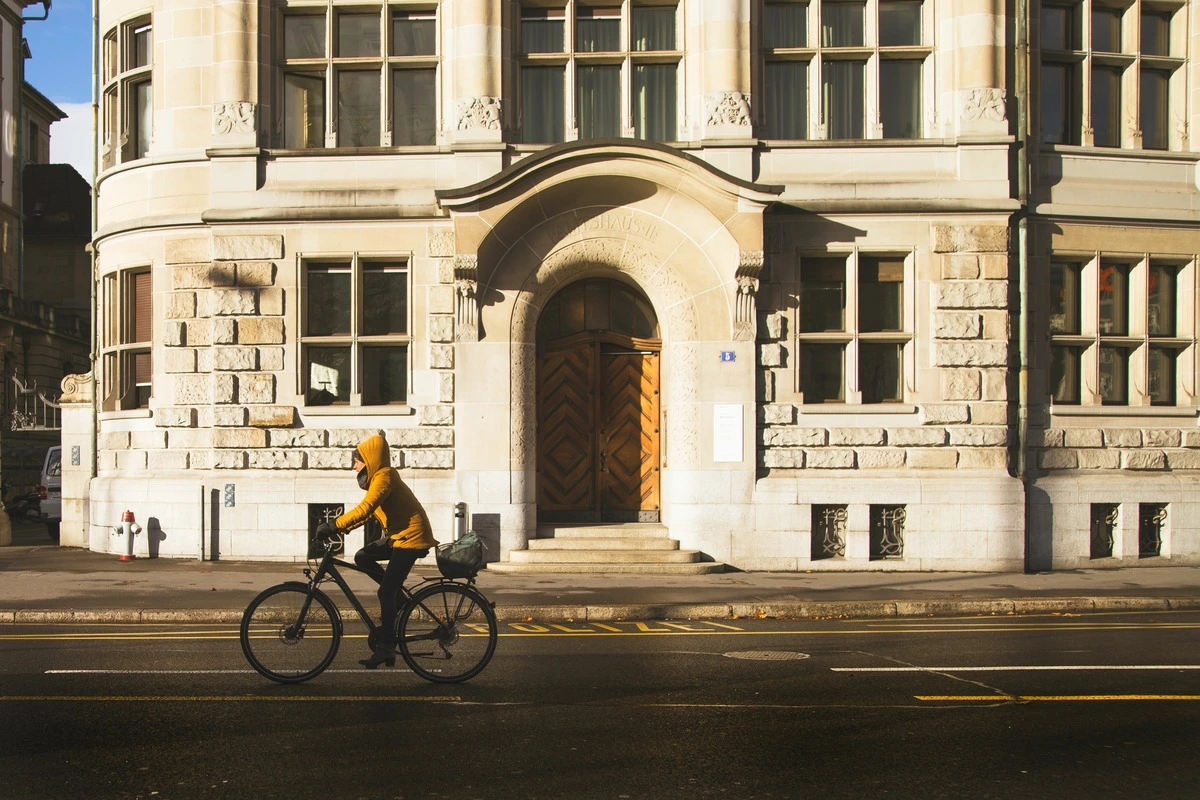
10. Utilise discounted food apps
To cut down on dining costs, try out apps like The Fork and Too Good To Go.
The Fork lets you book restaurant reservations far in advance and uncover discounts for more affordable meals. I saved up to 50% on a few restaurants in Switzerland.
Too Good To Go connects you with restaurants, cafes and supermarkets that offer discounts on surplus food. Simply turn on your location on the app and browse its many savings.
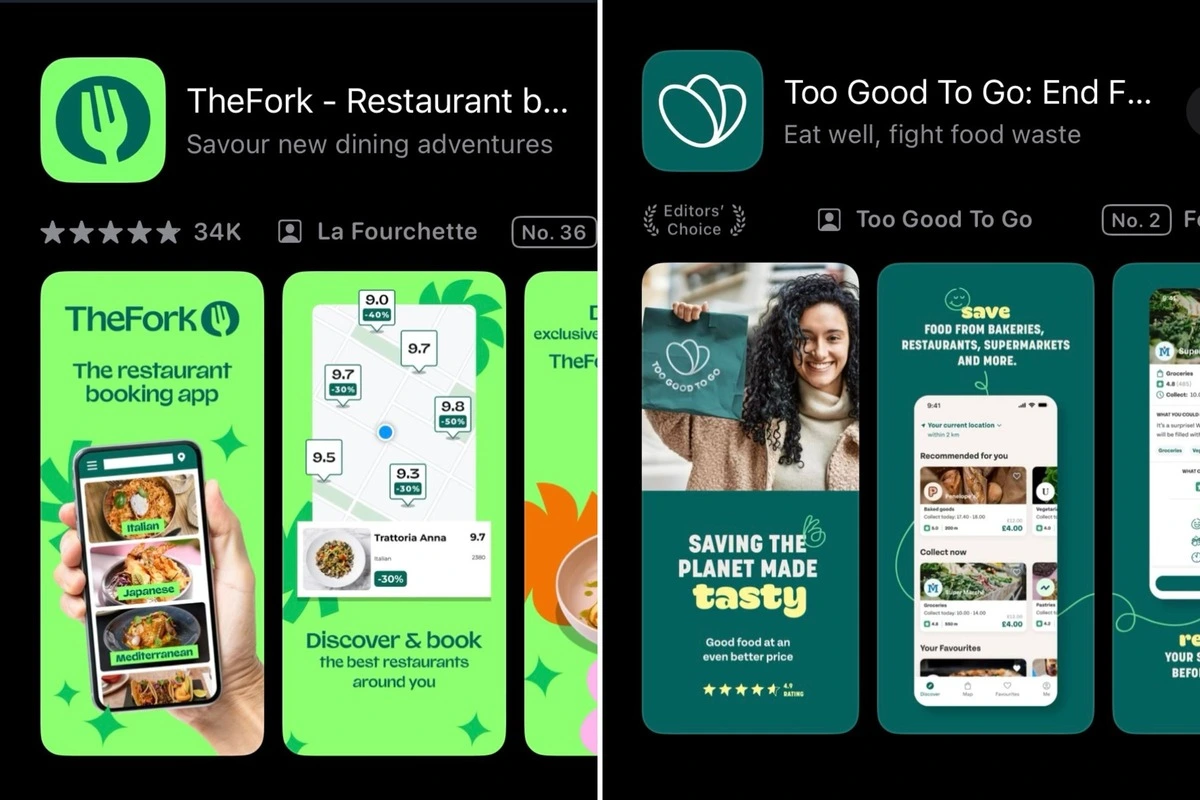
11. Bring extra Swiss Franc
I highly recommend carrying some extra CHF. It’s happened to me more times than I can count: I plan my daily expenses, and then I stumble upon places that only take cash.
Having extra Swiss Francs with you prevents you from needing to draw cash through an ATM and paying a service fee for currency exchange.
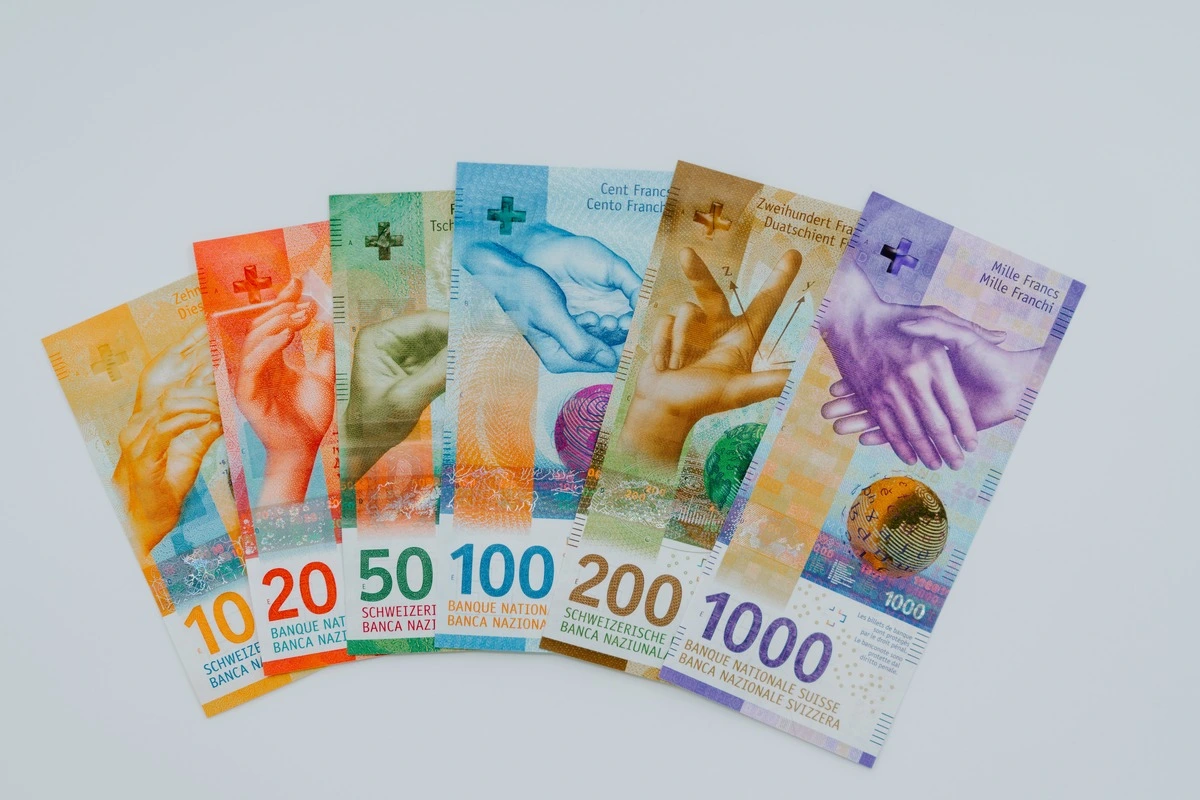
12. Use International debit or credit cards to avoid transaction fees
Regarding payments, consider using international debit or credit cards in Switzerland. Cards like Starling and other widely accepted options make your life easier when you’re exploring.
I take my Starling card with me everywhere around Europe, and it helps me avoid any foreign transaction fees. However, please refer to your current debit/credit card terms and conditions. P.s. I’m no financial expert.
Most establishments in Switzerland accept cards as a form of payment. However, checking with the establishment before purchasing is always a good idea. It’s better to be safe than sorry!
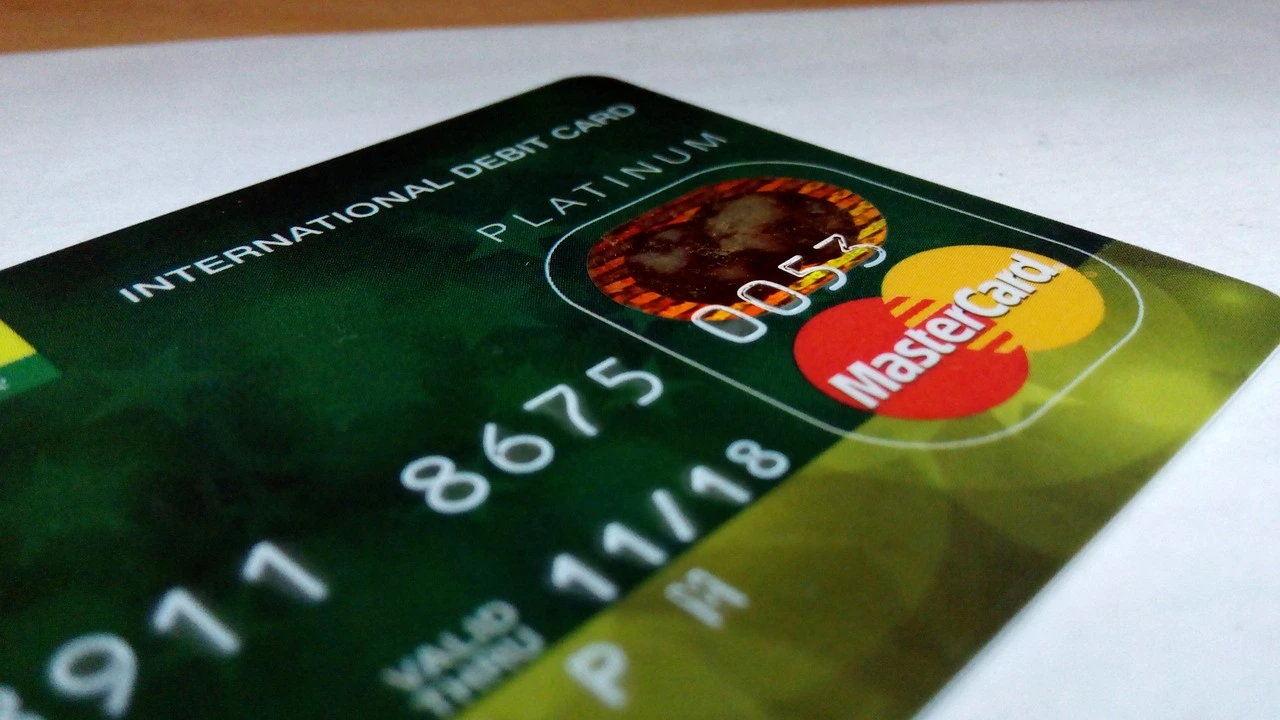
Frequently asked questions on budgeting for Switzerland
How much should I budget for a trip to Switzerland?
I would budget around 80-100 CHF daily for your trip to Switzerland. This includes accommodation costs and any extra expenses.
You can allocate a little less money with cost-efficient methods, like using the free guest card or purchasing supermarket food.
However, to be on the safe side, budget at least 80 CHF.
What can you eat in Switzerland on a budget?
Here are some options you can eat in Switzerland on a budget;
- Cheap Swiss Delights – Rosti and Cheese Fondue are cheaply available in supermarkets. Rosti is a deep-fried Swiss potato dish. Very similar to hash browns. Cheese Fondue is a Swiss melted cheese and wine dish, often served in a pot.
- Pasta – Simple option but always cheap from supermarkets. It can also be used throughout your stay for lunch and dinner.
- Pastries – Plenty of local bakeries in Switzerland produce lovely pastries. This will save you from eating at a restaurant for lunch.
- Ready-made meals – Easy and hassle-free. It saves you the hassle of cooking and is a more cost-effective option than eating out. I picked up a tasty spaghetti bolognese microwave meal for less than 3 CHF at the Co-Op.
- Sandwiches – Either shop-bought or for a cheap option, make your own. It is hugely convenient to bring your own for hikes where there are no options nearby to eat.

What is the cheapest airport to fly to Switzerland?
Geneva is the cheapest airport from which to fly into Switzerland, especially from the UK. There are plenty of connections from most major airports.
To find the cheapest flights, I used Skyscanner. It locates the best flight deals suited to your availability and budget.
Final thoughts on travelling to Switzerland on a budget
Switzerland’s expenses can be overwhelming, but I hope that following these simple tips will help you save hundreds in CHF.
It won’t be a free holiday by any stretch. However, I wouldn’t worry; you were never going to need to take out that second mortgage or sell the couch. I just want you to save as much as you can. Switzerland can be very affordable, especially if you do it right.
Take a leap and explore Switzerland in all its beauty; trust me, you’ll want to return. I’m already planning to; it’s only been a few months.
Looking for more posts on Switzerland? Check out:
PLAN YOUR TRIP TO SWITZERLAND
Switzerland Flights – Looking for cheap flights to Switzerland? I’ve used Skyscanner countless times during my travels. It will scan the internet for prices on flights from all airlines, so you can find the best deal on your flight!
Switzerland Travel Insurance – Do I need travel insurance for Switzerland? Yes of course! I always get travel insurance in case anything happens during my travels. I highly recommend SafetyWing to help you find the best travel insurance.
Switzerland Rental Cars – Should I rent a car in Switzerland? Definitely! I’ve rented a car in Switzerland multiple times, and it’s the most convenient way to get around. I was able to access areas where public transport doesn’t go. Discover Cars is my go-to rental agency and offers the best rates wherever you travel.
Switzerland Hotels – Need to find accommodation in Switzerland? I’ve been booking all my hotels through Booking.com for years. They have a large range of different accommodation options to suit all travel styles. Plus, their loyalty discounts are a huge bonus!
Switzerland Tours/Activities – For your tours or activities in Switzerland, I couldn’t recommend GetYourGuide enough! I use it everywhere I go, and it is brilliant for thinking of ideas of things to do.
Switzerland Phone Plans – If you need phone data while you’re travelling around Switzerland, I recommend getting an eSim using Airalo. It’s been my lifesaver. It offers affordable roaming with great coverage. You can download the SIM straight from their app and top it up whenever you want.
